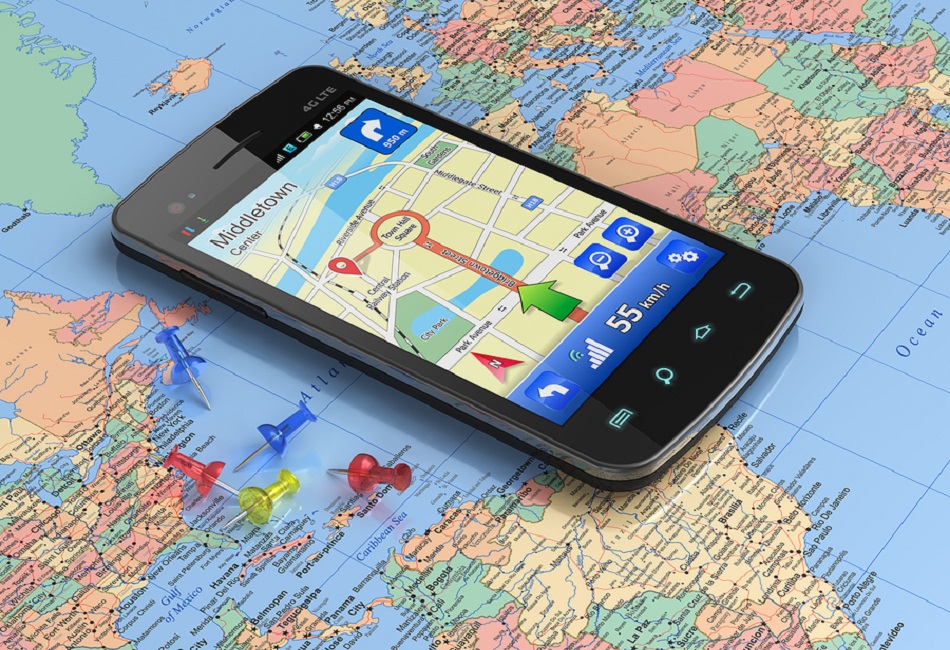5 pieces of advice for entrepreneurs in 2018, the local PR agency point of view
We recognize the importance of PR in your business and we believe you should as well. Therefore, after last week‘s pieces of advice received from Chapter 4 Romania, we now offer you the perspective of a local, driven and creative PR agency – Galeriu & Partners PR. A point of view wrote by Alina Galeriu, Managing Partner.

It’s a special mindset the one of an entrepreneur. It’s a mindset of a dreamer and in the same time a mindset of a doer. It’s the mindset of an overachiever.
There is no uncomplicated way when you start your own path and take full responsibility for your future and the future of your employees. There is no free time left, because your job becomes your life. Your thoughts will always revolve around your job and the worries will endlessly hunt you. There is no entrepreneur not facing these challenges daily.
I know this first hand, since I am myself an entrepreneur struggling with all these demons, doubts and setbacks. However, I also know how thrilling it is to win a new client, to receive a thank you email for a job well done or to simply see things happening the way you imagined them and even better. It’s like you have a magical wand that makes dreams come true. There are days when such emotions flood me and make every struggle worth it. There are days like these when mountains seem to be easy to move and the sky seems reachable.
So, I understand the way an entrepreneur thinks from an insider point of view. Also, as a communication consultant I come across various entrepreneurial businesses which I can see as an outsider, trying to grasp with an objective eye what needs to be done to improve their performance and help them gain more clients, which is ultimately their goal.
Fine tuning – the art of finding balance between idealism and realism
Talking about goals, the first advice I would give to an entrepreneur is about finding clarity in setting goals. From my experience with dealing with small business owners, the short-term objectives tend to win over the ones focused on long-term. Thus, they seem to be forgetting the bigger picture. Which is very dangerous on the long run for their business. When you think small, you act small.
Of course, there is also the equally dangerous approach of taking risks for the sake of saying “I believe I can, so I will”. Positive thinking can help one boost their morale, but there should be some extent towards which one can keep on dreaming without a reality check.
Either of these approaches would turn out to be inefficient, so my advice would be: start taking calculated risks. Of course, if you simply take small steps, the return will be also small and almost insignificant, so you can soon start feeling demotivated. Risk taking is something you should be considering as an entrepreneur. But, again: take the risk without losing your head! First years after launching a business translate into investing and getting little in return. But if you make the right investments (and by investing, I mean time, energy, money altogether) and have a helicopter view upon the market, the consumer and your product’s place among these exterior factors, you will win in time.
There is a thin line between being either too shy in taking risks or being reckless about it. This fine adjustment in finding the balance between the two is the art of keeping you head clear, focused on the future, yet having your feet on the ground.
How can this be translated into actual PR tactics?
Time to give some real examples, PR related. But not before debunking one more myth: PR is not free. Yes, it means investing far less money than you would have to invest if turning to advertising, but it still is a promoting technique which means investing some money to get results.
For example, you cannot expect to generate free media coverage endlessly without offering product samples to be tested by journalists and online influencers (bloggers, vloggers) or inviting them to test your facility if you are operating in a hospitality industry for example (a restaurant, a hotel, an entertainment facility). This, of course, translates into costs for your small business. But there is no better way to prove the effectiveness of your products or services than inviting key opinion leaders to test and convince themselves that you deserve to be praised. And there are several PR tactics.
Also, you cannot expect that your priorities would be embraced by everyone around you. Of course, your product’s benefits seem the most vital discovery in the world in your view, yet journalists are facing so many similar remarkable / never seen before / innovative product news which they need to browse through… So, it is only natural that sometimes they miss out on some of the details. Or sometimes they genuinely think some other product is more important or relevant for their readers or for the focus and style of the publication they are working for. This should not be a reason to hold a grudge. It is what it is. Learn the lesson and move on. Being too pushy regarding a certain topic will only make journalists feel cornered and uncomfortable. So better than to push someone on the verge of becoming resentful.
And finally, you should take into consideration giving back to others from time to time, through a small CSR campaign, or at least a donation for the less fortunate. Sometimes simply a know-how sharing effort can mean a lot for those in need, while for you would only mean sparing a few hours for visiting students at a university class or hosting internships for them in your company and guiding their firsts steps in the field you activate in.
In many ways PR is simply a set of common sense rules. It’s about empathy, about balance and about being reasonable. As simple as that.
8 Things you might not know about Kjell Nordstrom
Kjell Anders Nordström is a Swedish economist, writer and public speaker. Amid the madness and hyperbole surrounding the new economy, Dr. Kjell A. Nordström is a guru of the new world of business. In 2009, Thinkers 50, the global ranking of management gurus, placed him and his partner Jonas Ridderstrale among the list of most influential thinkers. His research and consulting focus is on the areas of corporate strategy, multinational corporations and globalization.
More things about him that you might not know:
1.He was first educated as an engineer and thereafter commenced studies at the Stockholm School of Economics, where he earned a Ph.D. in 1991. Until 2004 he was an Assistant Professor at the Institute of International Business (IIB) at the Stockholm School of Economics. His research and consulting focus is in the areas of strategic management, multinational corporations and globalization. He has served as an advisor/consultant to several large multinationals and to the government of the United Kingdom.
2. He believes that in order to get rid of that human shadow called poverty, we have to make up our minds as to what a good life is. “Technology without ideology and values, does not produce much value. As noted by Charles Handy, the market is not a substitute for responsibility – merely a mechanism for sorting the efficient from the inefficient,” he declared for http://thinkers50.com.
3. Nordstrom also thinks that never before in the history of mankind have we had so many potent tools that potentially enable us to build a better world and companies that are actually fun to work for, but it is up to us to create this future.
4. In his opinion, the role of the leader is to strike a balance between when there should be control and when you should let go. Leadership is very much an art form.
5. His book “Funky Business – Talent Makes Capital Dance” became an international best-seller and has to date been translated into 33 languages. In 2000, both Amazon.co.uk and the webzine Management General rated it as one of the five best business books of the year. Another survey ranked it as the 16th best business book of all time.
6. He has been described as the “enfant terrible of the new world of business”.
7. He is a founder of the Stockholm School of Economics’ most prestigious management program, which attracts the elite of Scandinavian executives.
8. Amusing, Educational, Enthusiastic, Informal, Interactive, Passionate, Story-telling and Thought-provoking. Kjell Nordstrom is one of a new generation of rock star speakers. His dynamic, agile and compelling style is matched by the scale and pace of his ideas.
Online identity protection – 10 simple tips

source: medibid
Up to 9 million Americans have their identities stolen each year according to the FTC , and at least 534 million personal records have been compromised since 2005 through attacks on the data bases of businesses, government bodies, institutions, and organizations. For some consumers, identity theft is an annoying inconvenience and they can quickly resolve their problems and restore their identity. For others, recovering their identity can cost hundreds, even thousands of dollars, take months to resolve, cause tremendous damage to their reputation, cause them to lose job opportunities, even influence the rejection of loan applications for school, homes or cars because would-be employers or loan companies see the damage on your credit scores.
In order to help you prevent these types of situations, here are some tips & tricks you should follow:
- Protect your computer and smartphone with strong, up-to-date security software. If your computer or phone is infected with malicious software, other safeguards are of little help because you’ve given the criminals the key to all your online actions. Also be sure that any operating system updates are installed.
- Learn to spot spam and scams. Though some phishing scams are easy to identify, other phishing attempts in email, Instant Messaging, on social networking sites, or websites can look very legitimate. The only way to never fall for phishing scam is to never click on a link that has been sent to you by someone you don’t know, looks suspicious or from a third party that you didn’t request the information from.
- Use strong passwords. Weak passwords are an identity thief’s dream – especially if you use the same password everywhere. You need passwords that are long (over 10 characters), strong (use upper and lower case letters, numbers and symbols), and that have nothing to do with your personal information (like name, age, birth date, pet)
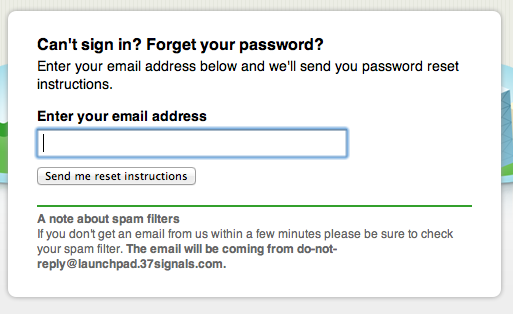
- Use multiple passwords. Have more than one password for online accounts or – if it’s cracked – thieves will be able to gain access to all your private data at once.
- Freeze your credit. Criminals use stolen ID’s to open new lines of credit. You can thwart their efforts to use your identity by simply locking (called freezing) your credit so that no new credit can be given without additional information and controls.
- Monitor & review your credit scores and bank data. Look too see if there are new credit cards, loans or other transactions on your account that you are not aware of. If there are, take immediate steps to have these terminated and investigated.
- Only use reputable websites when making purchases. If you don’t know the reputation of a company that you want to purchase from, do your homework. How are they reviewed by other users? Do they use a secure, encrypted connection for personal and financial information?
- Stay alert. Watch for common signs of identity theft like:
- false information on your credit reports, including your personal numeric code, address(es), name or employer’s name.
- Missing bills or other mail. If your bills don’t arrive, or come late, contact your creditors. A missing bill may indicate that an ID thief has hijacked your account and changed your billing address to help hide the crime.
- Getting new credit cards sent to you that you didn’t apply for.
- Having a credit approval denied or being subjected to high interest rates for no apparent reason.
- Receiving calls or notices about past due bills for products or services you didn’t buy.
- Exclude important personal information from your social media profile. On Facebook, that means culling any ‘friends’ you don’t know, minimizing the details in your ‘About Me’ section and being selective about hitting the ‘like’ button, all of which will make you harder to find.

source: backtoyourcountrynavigator
- Check your social media & phone privacy settings. Change all Facebook settings to “Friends Only” for all posts for a more secure profile. Facebook often makes changes to these settings and, when it does so, can even reset your secure settings. Moreover, turning your GPS location settings to “off” can also keep your family’s whereabouts more private.
Best Apps for Productivity in 2017

Every day we are bombarded by tons of emails, information and social media that is really hard to keep track of what is truly essential or not. Moreover, they are eating up a lot of precious work time, preventing one from being as productive as it could be and leaving the office at the right hour. Therefore, taking all this context in consideration, all the major app and technology providers are constantly looking for ways of improving the productivity and helping you have a proper balance work-life. We selected some of the most interesting and useful apps and extensions out there on the market, that are ready to help you achieve the productivity goal.
This browser extension measures your time. Being successful means being brutally honest with how you spend your time. You can set a timer for each activity you do and label what you are doing. At the end of the day, you can check how long you spend on each activity and adjust from there. It also syncs in with other productivity apps like Asana. Harvest’s powerful reporting gives you real-time access to keep your projects on time and on budget. Get the insight you need to estimate future projects, and ensure your business’s profitability.
Workflow lets you customize your phone so that you can skip time-wasting tasks. By telling your phone what to do when it notices a certain action, you can instruct your phone to call a taxi before your next calendar appointment, upload your latest photo to Instagram, and any other string of actions you can think of. You can build your own workflows with a simple drag-and-drop interface. Mix & match hundreds of actions to create quick shortcuts, manage your media, share content, and much more.
Under the headline, “Remember everything”, Evernote is an online collection of everything you want to remember. It’s like a digital notebook that stores photos, web pages, notes, PDF files, audio clips, and to-do lists. Once you add things to your notebook they’re completely searchable and can be accessed on your desktop, the Web, or your mobile device.
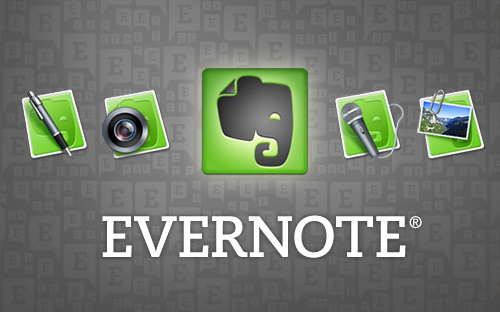
It allows you write and store documents, sketches, memos, pictures, and more online through the cloud. You can access it on your phone or on a computer. It proves to be very useful, especially when you have long materials or analysis to write, as you can start on your phone and continue the work at your laptop or desktop and vice-versa.
Moreover, Evernote makes sure the notes you’ve saved are easy to find. You can even search for handwritten words buried deep within your notes.
Slack is a great way for keeping in touch with your team at work without sifting through dozens of emails. You can tag users and create multiple channels for smaller team projects. The desktop client sends nonintrusive desktop notifications to the corner of your screen, allowing you to stay on top of what’s happening while keeping your eyes on your work.
When you are loaded with emails and you need order, Slack solves this by being something in between email and instant message. Messages and files sent to a group of people or a single person are neatly organized and clear as day.
On top of that, there are customizations you can add to make it your own. You can have it alert your phone with the app or pull up a GIF if you’re feeling funny.
If you want clear and easy, Clear is one of the simplest ways to keep track of what you need to do. You can easily drag and reorder your to-dos, and adding a new item is as easy as pulling down your list and typing it in. When you’re done with a task, just swipe right.
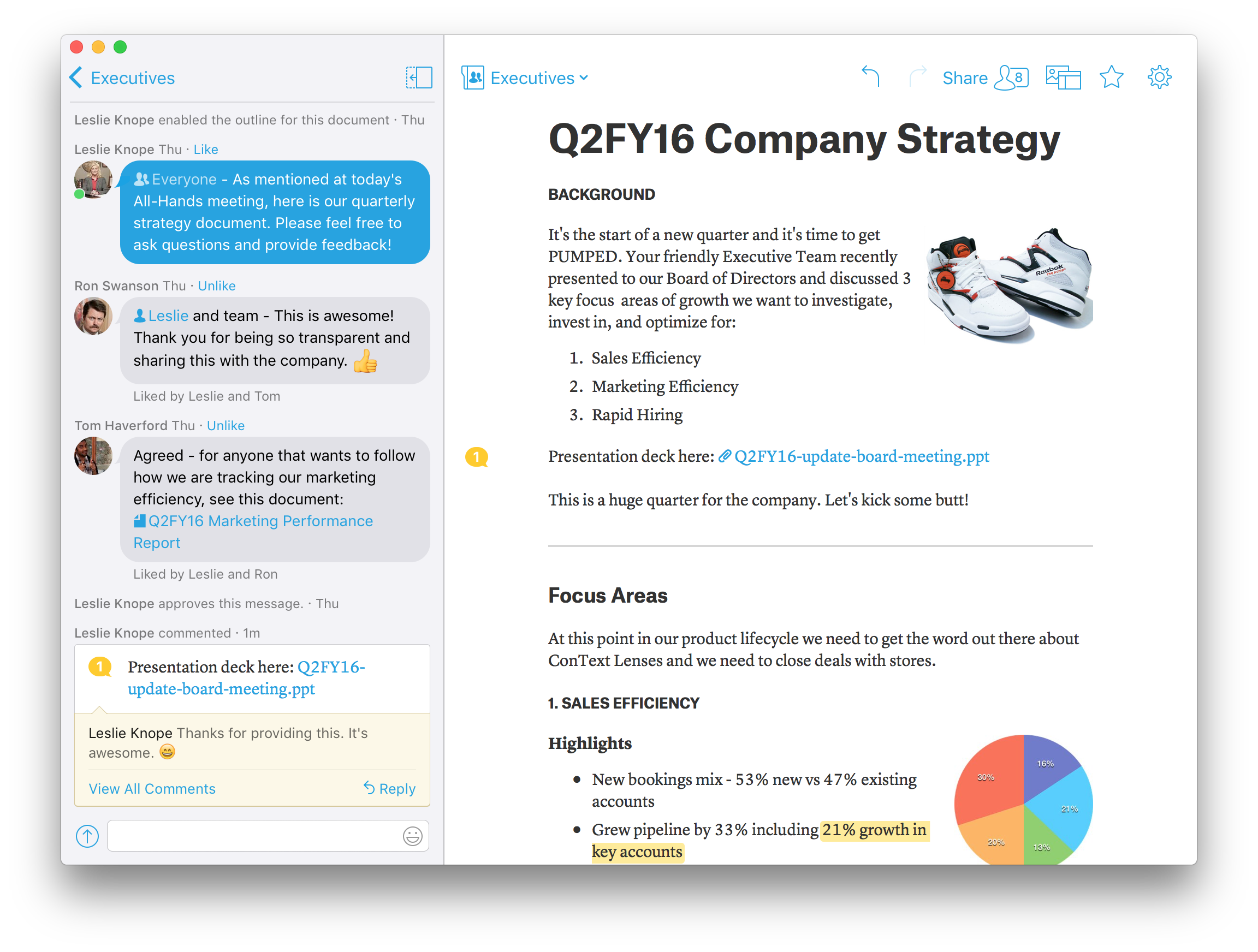
Quip is a mobile word-processing app created by Facebook’s former chief technology officer, Bret Taylor. Quip infuses a messaging element into the app to make collaboration a breeze. You can use the app to create documents, spreadsheets, and presentations. You can also use the app to collaborate on blog posts, manage projects, or even share a grocery list. Photo source: https://www.g2crowd.com/products/quip/details
According to thenextweb.com, if you find yourself bombarded with cute videos all day, Pocket might help you save those for later. If you frequently come across things you’d like to read “at some time” then Pocket can, again, help you out. With the requisite bookmarks, apps and extensions, it’s easy for you to save stuff to check out whenever you like.
The service lets you bookmark anything on the Web; articles are stored in your personal library, where they can be easily located and read when it’s most convenient. It doesn’t matter if you have a connection either, as Pocket can download (almost) everything to your device automatically.
Google Keep is a bit like Google’s version of Evernote, and it’s now available on both iOS and Android. You can use the app to take notes, make to-do lists, set reminders, and record audio. And one of its main qualities is the ability to organize your notes with colored labels.
Moreover, it’s stored online, so if you lose your phone or computer, your information is safe. It’s also accessible anywhere with Internet access. It’s intentionally made to be a very simple platform with few options. Therefore, you cannot format your text in any way.
Wunderlist is an easy-to-use to-do list app. It lets you set due dates and reminders and share lists or have conversations about them. Wunderlist can help you organize your grocery list, remember movies you want to see, or collaborate to help plan a vacation.
Besides keeping you organized, Fantastical 2’s best feature lets you enter simple phrases, which it will then translate into a calendar appointment automatically. Even better, the DayTicker and the event list are connected. Swipe the list and the DayTicker will update automatically. Fantastical lets you see your events and reminders like never before.

Letterspace is a note-taking app that uses hashtags to organize your thoughts. It also has a handy swipe bar that lets you move your on-screen cursor without moving your hands from the keyboard, which makes editing your notes much easier. Letterspace doesn’t distract you. It provides a noise free space to jot things down. To create a To Do List start a new line with a dash and a pair of squared brackets. On iPhone & iPad, Letterspace smart symbol suggestion also presents these characters when you start a new line. To mark it as completed just tap on it like a checkbox. Use #hashtag and @mentions anywhere in your notes. Letterspace automatically indexes and groups them together. In case you forgot to tag, we also have Full-Text search that support Asian languages right from the start.
The Internet is filled with interesting, crazy and new information (and sometimes so much we cannot handle it all). Driven by curiosity and personal development, you can spend a lot of time at work reading trivial articles. If you want to fix this, Instapaper is worth looking at. With one click, you can save it to be read later. It also suggests topics and articles through what you have saved already. Instapaper syncs the articles and videos you save so that they’re waiting for you on all your devices – iPhone, iPad, Android, or Kindle. You can read anything you save, anywhere and anytime you want, even offline.
- Time Tracker
This extension does what it says as well: it tracks your time. What’s great about this one is that it logs every different website you go to. You can check it out in detail to see where you spend your time. You will be surprised sometimes how much a certain website sucks your time and adjust.
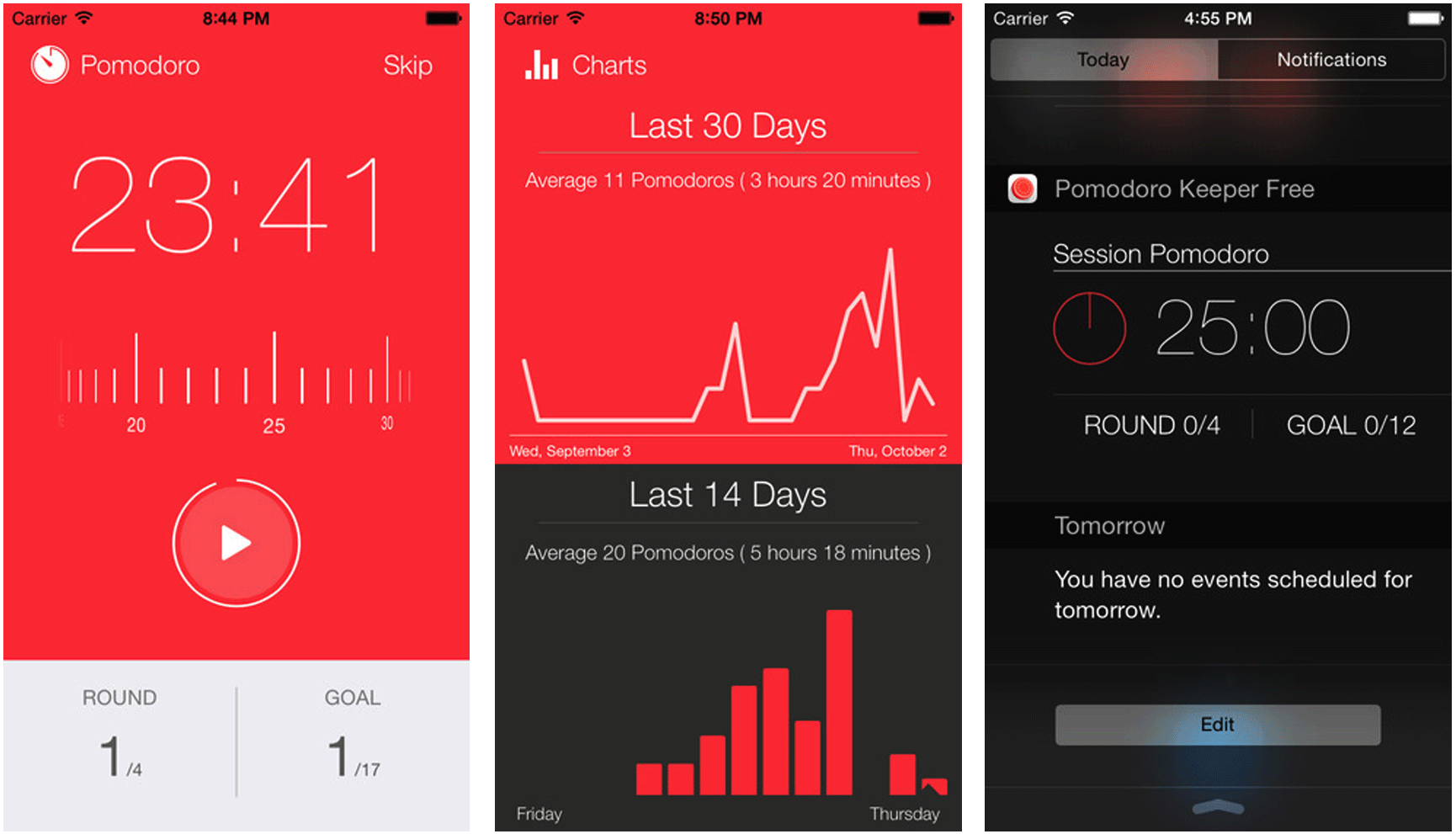
One of the most well-known productivity techniques is the Pomodoro Technique. Basically, you focus on just one task for 25 minutes and then take a forced 5-minute break. This extension is just like the Forest App but there is no animated tree involved (just a timer). Photo source: https://zapier.com/blog/best-pomodoro-apps/
Have you ever wondered if you are being less productive than you could be because you don’t know much about the science of sleep or sleep cycles? If not, it’s true. This site solves this problem for you by letting you know when you should sleep and wake up based on your personalized sleep cycles. If you don’t like this one, there are plenty of other tools and apps that do similar tasks. Sleep is a crucial, but often overlooked part of everyone’s life. Having the right amount can literally double your productivity.










